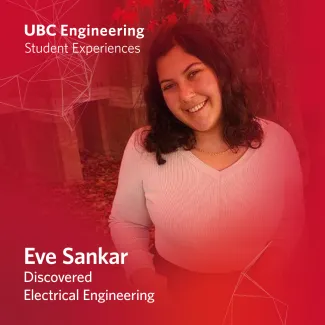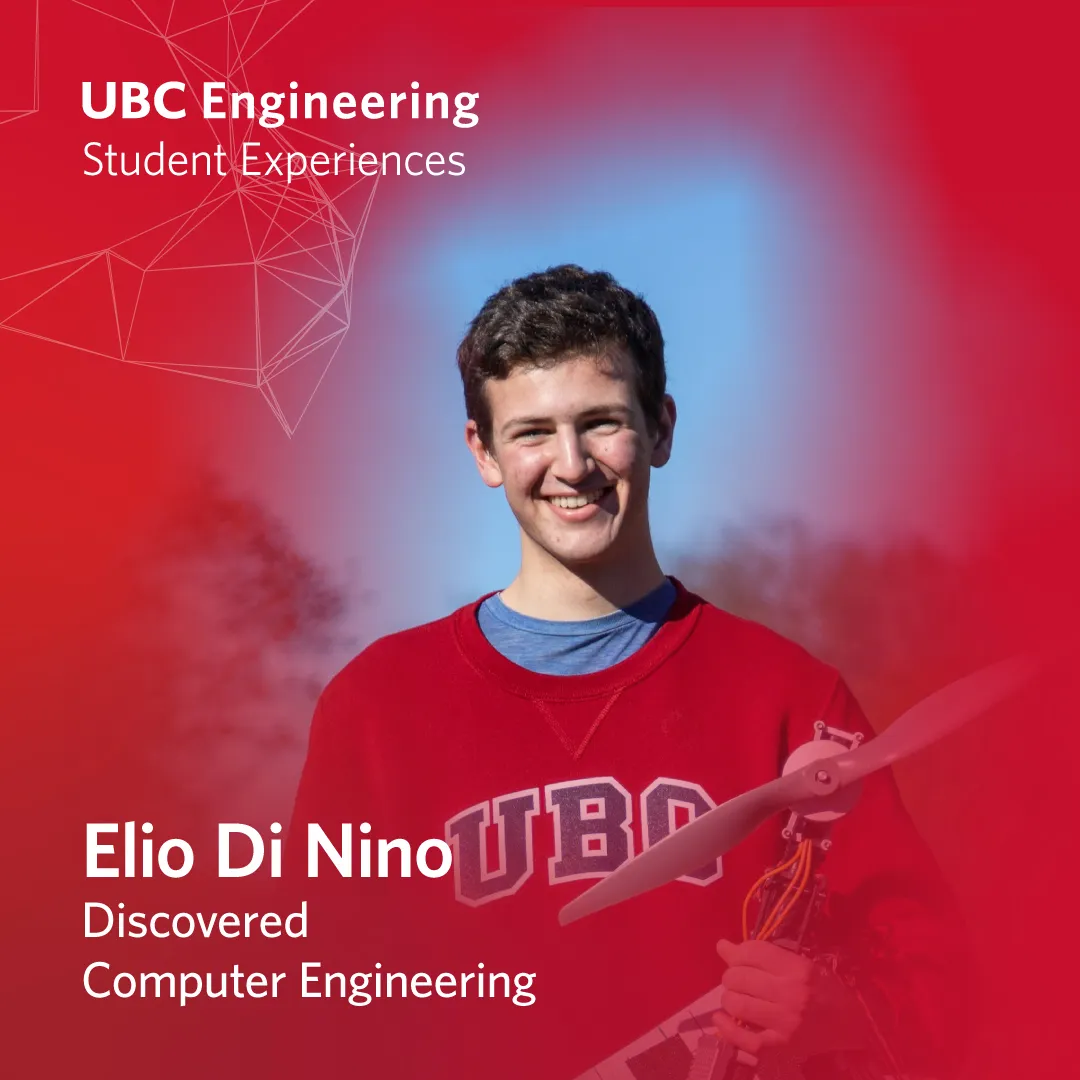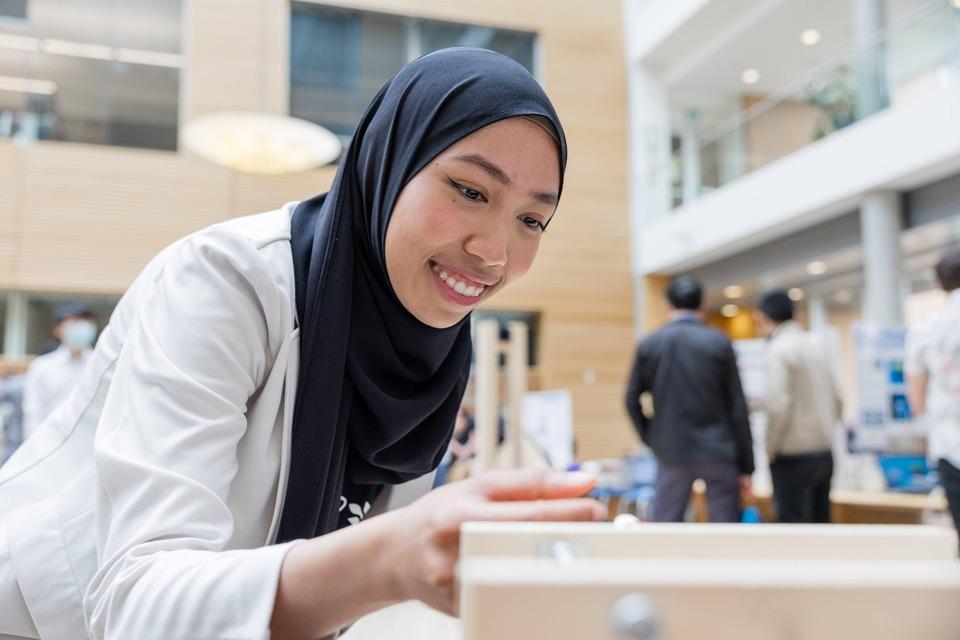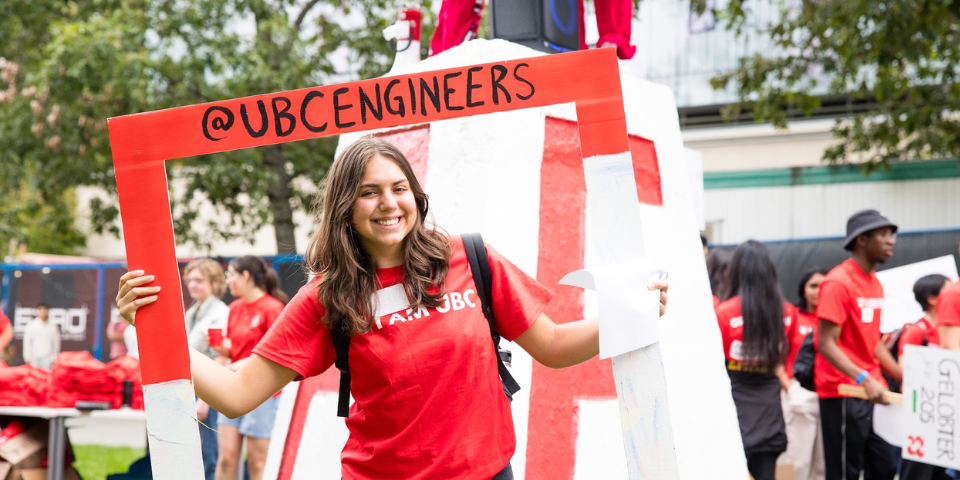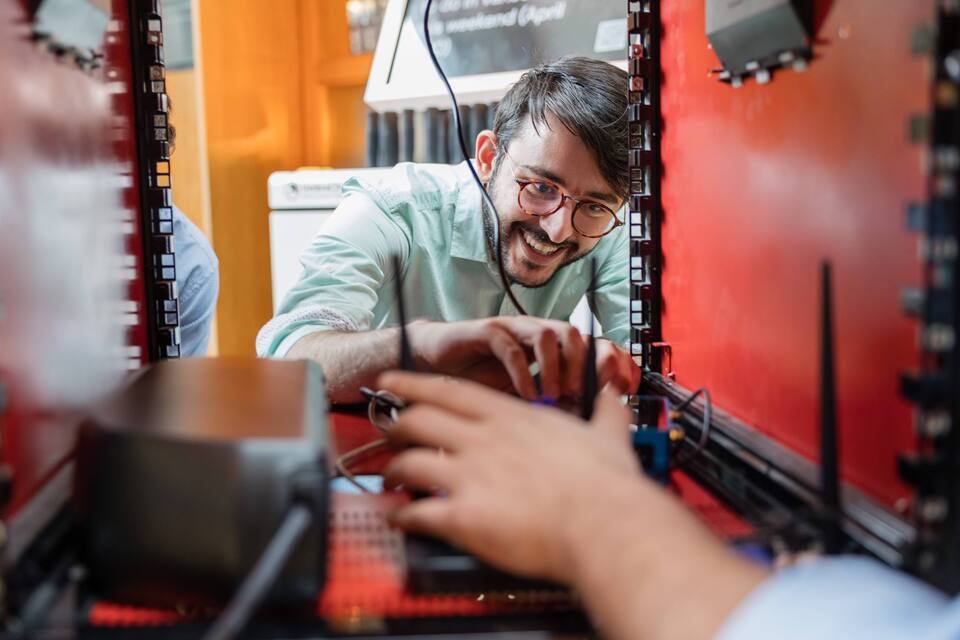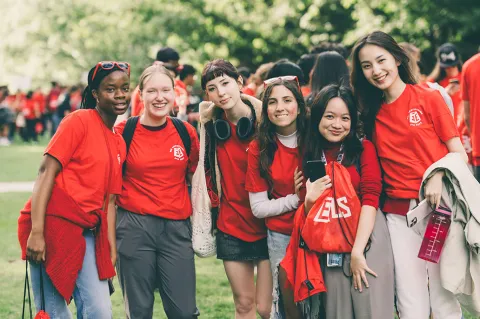
When you apply to study engineering at some universities, you have to choose your program – be that mechanical, electrical, biomedical, chemical or other type of engineering – before you’ve even taken a single engineering course. It can also be hard to change your course of study later on if you discover that your program choice wasn’t right for you.
UBC takes a different approach. All first-year engineering students take a foundation year that teaches you to think like an engineer and gives you the solid grounding in math, physics, chemistry and coding you’ll need to succeed no matter which engineering path you choose. At the end of first year, you’ll be making a more informed choice about which specialization best meets your interests and career goals.
What you’ll study in first year
The first-year course requirements set you up for success. You’ll take math, physics and chemistry courses designed specifically for engineers. Like you, the students in these classes will also be in first-year engineering, and many of the examples and problem sets will be connected to engineering in some way.
The heart of first year is APSC 100/101 on the Vancouver campus and APSC 169/171 on the Okanagan campus. Over two semesters, these courses teach you to think like an engineer. You’ll be working on lots of team-based design projects and asked to come up with solutions to challenges that don’t have obvious or “right” answers.
At UBC Vancouver, these include being asked to build a chair made solely of cardboard, create an assistive device for a client with a disability, build an automated claw, develop a proposal for a new protected bike lane in the City of Vancouver, and design a water treatment system for a remote community.
Each of the assigned projects will help you gain important skills you’ll need for a career in engineering, including learning how to work in groups, give oral presentations and communicate effectively in writing.
First-year course requirements
What students say
Here’s what some students have said about the value of first year:
“I was deciding between Waterloo for mechanical engineering or UBC for the general first-year program. I’m so glad I picked UBC, because mechanical engineering would have been the wrong choice for me. The foundational first-year program helped me figure out what I wanted to do.”
Eve Sanker, Electrical Engineering with a minor in Ocean Sciences
“First year was very helpful: I discovered I definitely don’t want to be doing anything long-term related to chemistry! I was debating between computer engineering and mechanical engineering, and computer engineering won out in the end because I realized how much I enjoy learning about technology.”
Elio Di Nino, Computer Engineering
“One of the projects we did in the first-year engineering class was to design a 3D-printed mechanical claw to help people with disabilities. I loved this project and realized I wanted to work in an interdisciplinary area that brings together my interests in software, mechanical and electrical engineering.”
Pan Tisapramotkul, Integrated Engineering
